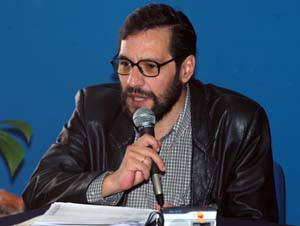
Bolivia to Settle Landless Peasants Along Brazil Border
July 10, 2009 - Latin American Herald Tribune
LA PAZ -- The Bolivian government said Wednesday that it plans to resettle 2,000 landless peasant families from the central provinces of La Paz and Cochabamba to the Amazonian region of Pando, bordering Brazil.
The peasants are to be settled on 200,000 hectares (493,827 acres) distributed across three jurisdictions in Pando province, Deputy Land Minister Alejandro Almaraz told a press conference in the capital.
He said the families will subsist on rubber-tapping, gathering chestnuts and the cultivation of cocoa, coffee and plantains.
The project is part of a program of community settlements in Pando that aims both to establish Bolivia's sovereignty in sparsely populated border regions and to fulfull a constitutional mandate for land reform, the official said.
Almaraz stressed that President Evo Morales' socialist government had been careful to ensure the land needs of Pando's current residents were met before deciding to bring in settlers from elsewhere.
He said colonists were being recruited from La Paz and Cochabamba because those are the provinces where "the problem of the lack of land is most acute."
The transfer is set to begin in August, coinciding with voter registration ahead of December's general elections, and Bolivia's right-wing parties accuse Morales of seeking to change the political balance in Pando, a province that usually votes with the opposition.
A rightist senator who represents Pando, Roger Pinto, also said that the settlement areas lack roads and basic services.
The Morales administration rejects the charges, saying that the resettlement process could not be carried out last year due to "financial limitations."
Almaraz likewise said that the settlement areas will have roads and necessary services by August.
Morales' agrarian reform has encountered sometimes-violent opposition in eastern Bolivia, where land barons remain opposed to the idea of breaking up estates -- some as large as 1 million acres -- to provide plots for landless peasants.
U.N. figures show the combined holdings of Bolivia's richest 100 rural families exceed those of the country's 2 million peasant farmers.
Pando is currently under the administration of a military governor appointed by Morales last September after around a dozen of his supporters were gunned down amid violent opposition protests.
The central government blamed the bloodshed on Pando Gov. Leopoldo Fernandez, now jailed in La Paz awaiting trial.
The new constitution Bolivia adopted earlier this year requires the holding of fresh presidential and congressional elections.
Now nearly four years into a five-year term, Morales, the first indigenous president of the majority-Indian nation, plans to seek a renewed mandate that would allow him to remain in office until 2014.